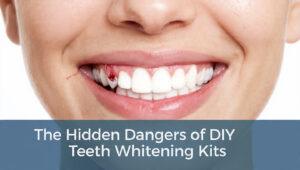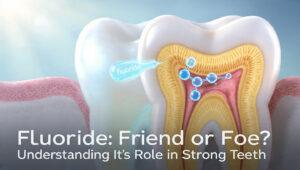Maintain Healthy Teeth with simple daily habits. Discover expert dental care tips and insights from a reputed dental clinic.
A healthy smile is more than just a sign of beauty—it’s a reflection of your overall well-being. Teeth play a vital role in speaking, chewing, and even boosting confidence, yet they’re often neglected until problems arise. The good news is that you don’t need complicated routines or expensive products to keep your teeth in excellent condition. With just a few simple daily habits, you can maintain healthy teeth and avoid many common dental problems.
This guide explores practical, evidence-based tips, lifestyle choices, and preventive steps that will keep your oral health strong for years to come.
Why Oral Health Matters Beyond a Smile
Oral health impacts more than your teeth and gums. Research has shown connections between poor dental hygiene and health issues such as:
- Heart disease
- Diabetes
- Respiratory infections
- Low birth weight in infants (in expectant mothers with gum disease)
Taking care of your teeth is not just about looking good—it’s about safeguarding your overall health.

Daily Habits to Maintain Healthy Teeth
Building consistency is the key. Here are simple daily habits recommended by dental professionals:
1. Brushing the Right Way
- Brush at least twice a day, especially before bed.
- Use fluoride toothpaste to strengthen enamel.
- Hold your toothbrush at a 45-degree angle and use gentle circular motions.
- Don’t rush—spend at least two minutes brushing.
2. Flossing Is Non-Negotiable
Brushing cleans the surface of your teeth, but flossing removes plaque and food particles trapped between them. Make it a part of your daily routine, preferably before bedtime.
3. Mouthwash for Extra Protection
An antimicrobial or fluoride mouthwash can help reduce plaque, freshen breath, and add an extra layer of defense against cavities.
4. Drink More Water
Water helps wash away food particles, neutralizes acids, and keeps your mouth hydrated. It’s also the best alternative to sugary drinks that damage teeth.
5. Choose Teeth-Friendly Foods
- Crunchy fruits and vegetables like apples, carrots, and cucumbers naturally clean teeth.
- Dairy products strengthen enamel with calcium.
- Avoid sticky candies and sodas that linger on teeth.

Lifestyle Habits That Influence Oral Health
Your lifestyle choices play a big role in dental health:
- Quit Smoking or Tobacco Use: Both stain teeth and increase the risk of gum disease and oral cancer.
- Limit Alcohol Consumption: Excessive alcohol erodes enamel and dries the mouth.
- Manage Stress: Stress can lead to teeth grinding (bruxism), which damages enamel.
Professional Care Is Just as Important
Even with the best home care, professional check-ups remain essential. Dentists can identify hidden issues before they become serious. A visit every six months is recommended for:
- Professional cleaning to remove tartar.
- Early detection of cavities and gum disease.
- Personalized advice for long-term oral health.
This is why finding the Best Dental Clinic in Guwahati is crucial—it ensures you receive expert care backed by experience and trust, just like the team at Om Sai Dental Care is known for.
How Parents Can Help Children Maintain Healthy Teeth
Children’s oral care sets the foundation for lifelong habits. Parents can:
- Supervise brushing until age 7–8.
- Introduce flossing early.
- Limit sugary snacks.
- Schedule regular pediatric dental visits.
Myths vs. Facts About Oral Care
- Myth: Whitening toothpaste can permanently whiten teeth.
Fact: It only removes surface stains but doesn’t change the tooth color. - Myth: Harder brushing cleans better.
Fact: Aggressive brushing damages enamel and gums. - Myth: Cavities in baby teeth don’t matter.
Fact: Untreated cavities can affect permanent teeth and overall health.
Benefits of Practicing Daily Dental Habits
By committing to simple routines, you:
- Prevent tooth decay and gum disease
- Save money on costly dental procedures
- Improve overall health and confidence
- Ensure fresher breath and a brighter smile

FAQs About Dental Health
Q1. How often should I replace my toothbrush?
Every 3–4 months, or sooner if the bristles fray.
Q2. Is flossing really necessary if I brush twice a day?
Yes. Brushing alone cannot reach between teeth where plaque often hides.
Q3. What’s the best way to prevent cavities naturally?
Limit sugar intake, brush with fluoride toothpaste, floss daily, and drink plenty of water.
Q4. Are electric toothbrushes better than manual ones?
Electric brushes are more effective for people with mobility issues, but both can be equally effective if used properly.
Q5. When should my child have their first dental visit?
By their first birthday or within six months of the first tooth appearing.
Healthy Teeth Begin with Small Daily Habits That Last a Lifetime
Stress and anxiety can be managed with the right habits—and the same goes for oral health. Maintaining healthy teeth doesn’t require complicated rituals. Instead, it’s about small, consistent steps: brushing properly, flossing, eating wisely, and visiting professionals regularly.
When paired with professional dental guidance from experts these simple habits can help you achieve not only a brighter smile but also better overall health.
Your daily choices matter—start today, and your future self will thank you.



